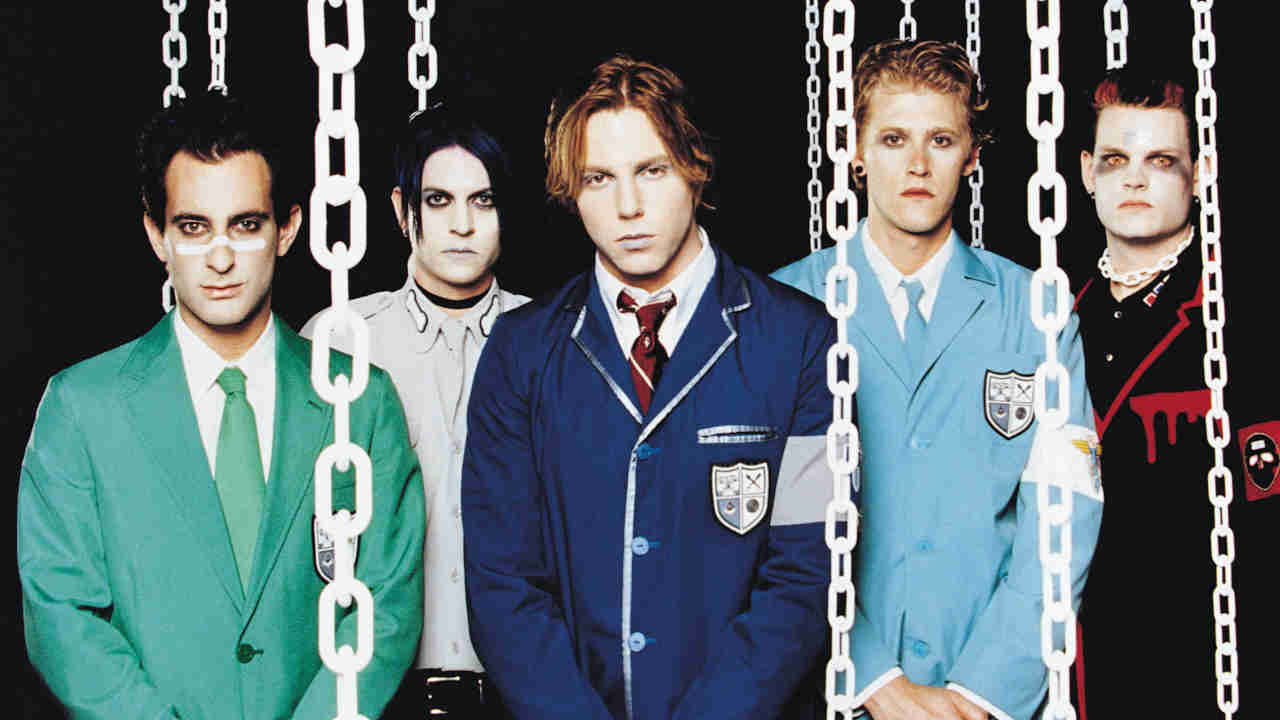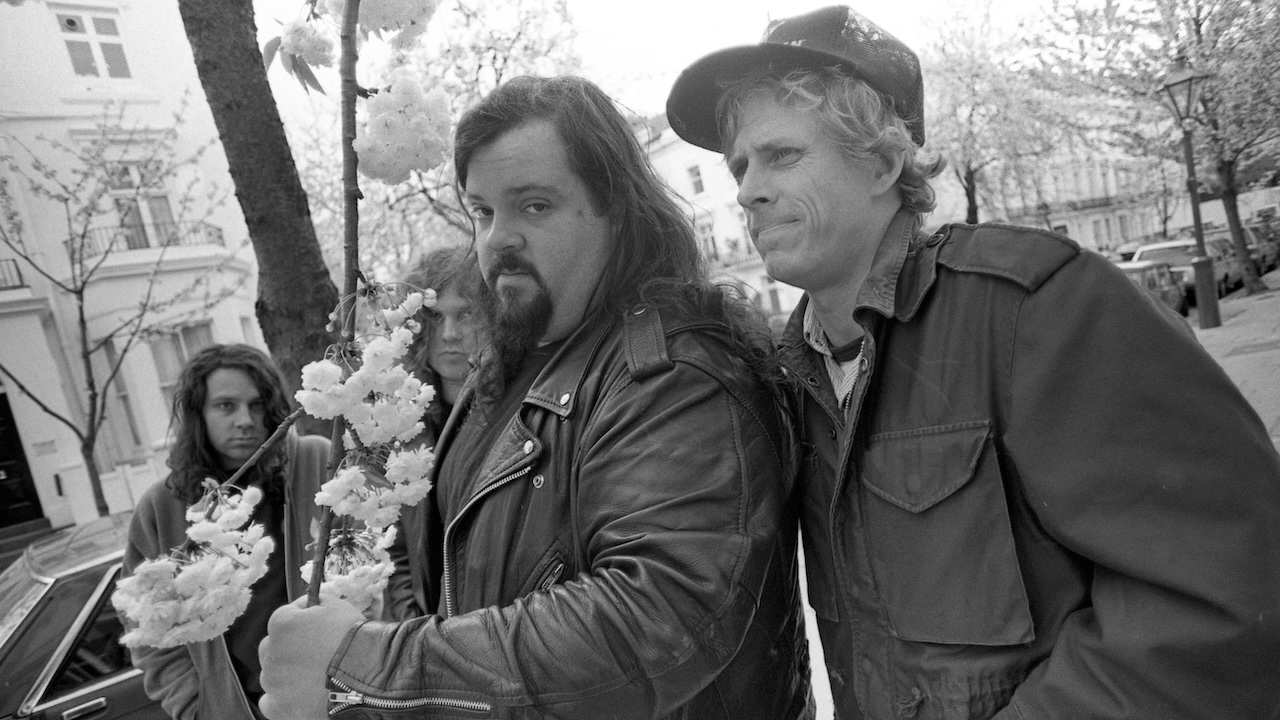10 obscure but brilliant 2000s bands who should have been massive
For every Avenged Sevenfold and Killswitch Engage, there were hundreds of 2000s bands the world has forgotten. Here are 10 who should have been massive

From emo to metalcore, the 00s saw the rise of some of rock’s most vibrant scenes. But for every Avenged Sevenfold, My Chemical Romance and Bring Me The Horizon, there were hundreds of bands who came within touching distance of greatness but failed to make the grade.
Here are 10 who deserve to be fished out of the dustbin of history and given a second chance.

1. Silvertide
Philadelphia livewires Silvertide were part of the mid-00s rock revival that included everyone from The Darkness and Wolfmother to The Answer and Black Stone Cherry. Their debut – and to date, only – record Show And Tell brimmed with feelgood rock vibes, strutting and preening like the rock gods of old.
Tours with Van Halen, Velvet Revolver and Alter Bridge helped them build a strong profile and an appearance on Jimmy Kimmel Live seemed to mark them out for superstardom, but alas it was all for naught. A second album never materialised and in 2010 it was announced the band had split.
2. Ephel Duath
These avant-garde Italians weren’t afraid to follow their artistic urges, branching off into jazz and hardcore while embracing esoteric concepts. Second album The Painter’s Palette (2003) linked songs to colours, while fifth album, 2009’s Through My Dog’s Eyes, whimsically delivered exactly what the title promised – a record told entirely from a pooch’s perspective.
3. The Workhorse Movement
Released at the dawn of the new millennium, Sons Of The Pioneers’ bold fusion of metal, funk, rap and blue-collar rock looked set to make Detroit’s The Workhorse Movement household names. Fans and critics adored it. Problem was, the band didn’t adore each other, and broke up after just one record. Shame.
4. Necrophagist
With just two stunning albums (Onset Of Putrefaction in 1999 and Epitaph in 2004), Germany’s Necrophagist helped lay down the blueprint for death metal in the 21st century.
Sign up below to get the latest from Metal Hammer, plus exclusive special offers, direct to your inbox!
Technically dazzling, fiendishly inventive and heroically heavy, the band’s aptly titled second and final effort had the underground salivating and gave countless bands plenty of ideas to plunder for years to come. They never officially split up, though they haven't played since 2010 and show no sign of re-emerging from what dank cave they’re hiding in.
5. Reuben
With chunky, danceable riffs and instantly-memorable choruses, Surrey alt-rockers Rueben should have been way more popular than they were. But despite receiving plenty of critical acclaim, their first two albums, 2004’s Racecar Is Racecar Backwards and 2005’s Very Fast Very Dangerous stalled in the lower reaches of the UK charts, while their 2007 swansong In Nothing We Trust didn’t even make the top 100.
Frontman Jamie Lenman carved out a second career as an illustrator, before returning to music in 2013 with Muscle Memory, by which time he had grown rock’s greatest wing commander moustache.
6. Yakuza
These Chicago wizards smashed together doom, thrash, jazz, avant garde and world beat in a fashion that was groundbreaking as it was unique – 2002’s Way Of The Dead and 2006’s Samsara sounded like nothing else going on at the time.
Unsurprisingly, a world transitioning from nu metal’s baggy-shorted foolishness to emo’s woe-is-me solipsism wasn’t ready for such visionary music, not helped by Yakuza themselves becoming increasingly impenetrable with each release. Way ahead of their time (and they’re still going).
7. The Blood Brothers
The early 00s success of At The Drive-In opened the gates for a bunch of wild, wired post-hardcore bands to follow. Few were as wired or wild as double-frontman’d dervishes The Blood Brothers, whose screaming chipmunk yelps over scratchy guitars, noise rock freakouts and lyrics that read like serial killer beat poetry made even Cedric Bixler and co look as maverick as Ed Sheeran.
With their third album, 2003’s Burn, Piano Island, Burn, they got a massive boost from the patronage of producer and nu-metal overlord Ross Robinson, but even that couldn’t sugar the pill for the public. They split in 2007.
8. Bloodsimple
Bloodsimple looked to be hot shit in the mid-00s. Vocalist Tim Williams used to be in hardcore ragers Vision Of Disorderand their debut album A Cruel World drank heavily from nu metal, metalcore and post-hardcore, and they had the weight of major label Reprise behind them. But second album Red Harvest failed to generate any excitement in 2007, and the following year both Williams and guitarist Mike Kennedy were back in a reunited Vision Of Disorder, leaving Bloodsimple dead in the water.
9. Deadsy
Hollywood synth-goth brats Deadsy had it all: a Type O Negative-does-Depeche Mode sound, a celebrity parent (frontman Elijah Blue Allman’s mom is Cher) and nu metal royalty Jonathan Davis and Fred Durst in their corner.
They made an epic self-titled debut album in 1997, only to be dropped on the eve of release. A retooled and improved version, titled Commencement, finally emerged. By the time they released their swansong, Phantasmagore, in 2006, even the handful of people who had been listening had wandered off elsewhere.
10. I Am Ghost
I Am Ghost were the archetypal Myspace emo band, its members brought together on the social media platform by singer Steve Juliano. Their ambitious 2006 debut album Lovers Requiem was was described by Juliano as “a rock opera for hardcore or goth kids”. But reception to less-gothy follow-up Those We Leave Behind was muted, and they split in 2010, with Juliano saying they had “grown up”. But considering just how big the emo revival is right now, we wouldn’t say no to a second coming of I Am Ghost…
Staff writer for Metal Hammer, Rich has never met a feature he didn't fancy, which is just as well when it comes to covering everything rock, punk and metal for both print and online, be it legendary events like Rock In Rio or Clash Of The Titans or seeking out exciting new bands like Nine Treasures, Jinjer and Sleep Token.

